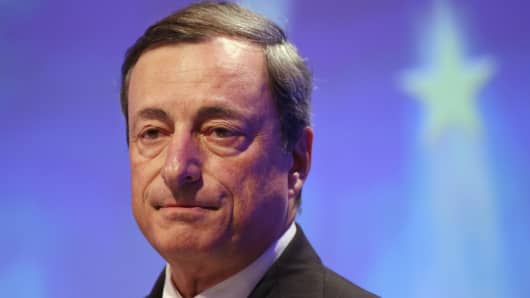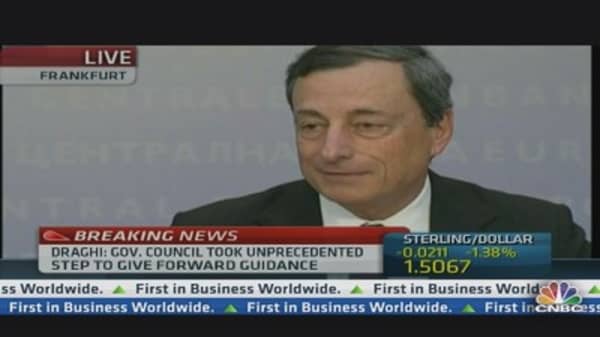One year on from his "whatever it takes" speech and less than two years after taking the helm at the European Central Bank, Mario Draghi has won over some of the harshest critics of his controversial methods to fight the euro crisis. Not least in Germany.
"Mamma mia!" the headline of Germany's Bild tabloid screamed in 2011 after the hawkish candidate Axel Weber withdrew from the race for the top spot at the ECB. "Please, not this Italian," the paper said. "For Italians inflation goes with life like tomato sauce goes with spaghetti."
The prospect of a central banker from the land of the lira, "a currency with a ludicrous amount of zeros" in which a bus ticket used to cost over 1,000 currency units was less than appealing.
(Slideshow: Mario Draghi's greatest hits)
But the tabloid changed its tune. The smooth operating Italian managed to win the support of German Chancellor Angela Merkel and Bild promptly published an image of Draghi wearing a spiked Prussian helmet alongside an article extolling his "German" virtues.
Although his love affair with German media wouldn't last, with accusations he was too easy on heavily-indebted southern Europe, experts agree Draghi scores high on diplomacy.






